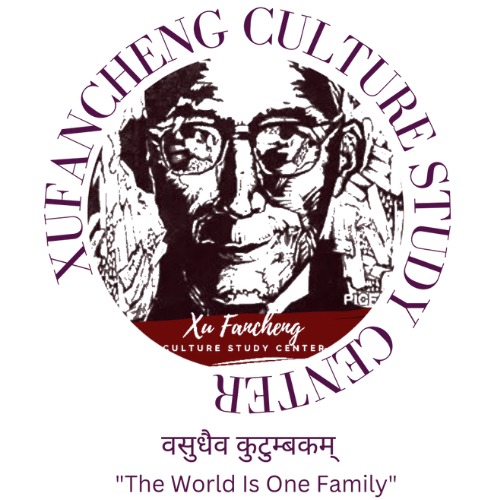Cultural Exchange Over Chinese Tea
Chinese tea culture is a rich tradition that delights tea connoisseurs worldwide. Each blend of Chinese tea, skillfully crafted by masters of this art, invites an exquisite tea experience that captures the essence of Chinese history, philosophy, and social life.
The term “Cha wenhua” (茶文化) refers to the profound cultural significance of tea in China. Tea in China is more than just a beverage; it embodies a way of life, a symbol of hospitality, and a vital part of traditional Chinese medicine and cuisine.
The Essence of Chinese Tea Culture
Chinese tea culture has a long and storied history that dates back to the Tang Dynasty. It is a practice that blends the spirit and wisdom of human beings, bringing them to a higher orbit of social and cultural accomplishments.
Tea is an integral part of everyday life in China, enjoyed on casual and formal occasions alike. It is also a crucial element of Chinese cuisine and traditional medicine. The practice of tea culture in China is distinct from other countries, with unique styles of preparation, taste, and occasions for consumption.
Six Types of Chinese Tea
Chinese tea can be classified into six categories:
- White Tea
- Yellow Tea
- Oolong Tea
- Green Tea
- Black Tea
- Post-fermented (Pu’er Tea)
Each of these teas is derived from varieties of the Camellia sinensis plant and processed using ancient methods that have been passed down through generations.
Celebrating Cultural Exchange in Pondicherry
In a celebration of this rich heritage, the XuFancheng Culture Study Center in Pondicherry, India, is hosting a cultural exchange event focusing on Chinese tea. This gathering aims to foster a deeper understanding of Chinese tea culture and strengthen the ties between Chinese and Indian communities.
Event Details
- Date: January 16, 2021
- Time: 16:00 PM
- Location: Conference Hall, XuFancheng Culture Study Center, Pondicherry, India
- Registration: Limited participation, email us at pica.in@gmail.com
- More Information: XuFancheng Culture Study Center Blog & PICFA Blog
Agenda
- 16:00 – Registration
- 16:05 – Introduction of Speakers and Guests
- 16:10 – Presentation by Dr. Das Bikash Kali on the XuFancheng Culture Study Center and Pondicherry India-China Friendship Association
- 16:30 – Brief Talk by Miss Zhang Deli (Anandi) on Chinese Culture
- 16:40 – Speech by Miss Satyamayee Pattnaik on Sino-India Cultures
- 16:50 – Poem Recitation by Mr. Sehdev Kumar
- 17:00 – Open Discussion followed by a Chinese Tea Culture Ceremony by Mr. Chun Xu and Miss Isha














Objectives
- To understand the values of Chinese tea culture
- To facilitate cultural exchange between Chinese and Indian communities
- To provide a platform for the Chinese diaspora in India to express their views
- To enhance and enrich people-to-people relations between Indian and Chinese communities
- To develop a platform for India-China cultural exchange
- To foster connections with the Chinese community in South India
- To discuss cultural and educational exchanges
- To address the fight against COVID-19, the post-COVID world, and new normals
About the Speakers
Dr. Das Bikash Kali (克理) is an expert in India-China relations and the Deputy Director of the XuFancheng Culture Study Center. He is dedicated to developing opportunities for youth and women in the field of China-India cultural studies.
Mr. Chun Xu is a Chinese Aurovilian passionate about cultural exchange between China and India. He shares Chinese well-being culture, traditional therapies, and tea culture with Indian friends while exploring Indian Ayurvedic medicine, temple culture, and languages.
Miss Deli Zhang (Anandi) was born in Chongqing, China, and is a translator and Chinese language teacher. Her deep connection to nature and exploration of cultures led her to Auroville, where she engages in cultural activities and translations, including Kabir’s verses into Chinese.
Miss Satyamayee Pattnaik is pursuing post-graduation in East Asian Studies at the University of Delhi. Her passion for Chinese culture and language drives her to seek opportunities to bridge cultural gaps between India and China.
Dr. Sehdev Kumar is Professor Emeritus of Environmental Studies at the University of Waterloo, Canada. As a historian of science and mystical thought, he promotes human unity and earth consciousness, currently living in Auroville, South India.









Event Report
The event began with a presentation by Dr. Das Bikash Kali, who introduced the XuFancheng Culture Study Center and the Pondicherry India-China Friendship Association. Dr. Das highlighted the organization’s efforts to enhance India-China cultural relations and urged collaboration to develop a platform for youth and women interested in this field.
Miss Deli Zhang followed with insights into Sri Aurobindo’s and Xu Fancheng’s spiritual connections, emphasizing the cultural ties between India and China. She is currently translating Kabir’s verses into Chinese, highlighting the legacy of XuFancheng’s art at the Aurobindo Ashram.
Miss Satyamayee Pattnaik shared her experiences studying Chinese culture and language, emphasizing the need for platforms like the XuFancheng Culture Study Center to showcase talents in India-China cultural relations.
Professor Sehdev Kumar concluded with a historical perspective on India-China relations, underscoring their importance in fostering people-to-people connections.
The event successfully brought together 24 participants from India and China, reflecting on the shared wisdom and culture of these ancient civilizations. Cultural exchange was recognized as a vital path to peace and prosperity, encouraging collaboration to create a better post-pandemic world.
Chinese tea culture is a gateway to understanding the intricate bond between India and China. It invites individuals to appreciate art, human values, and the wisdom that transcends borders, fostering a spirit of unity and cultural appreciation.







